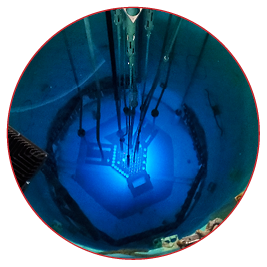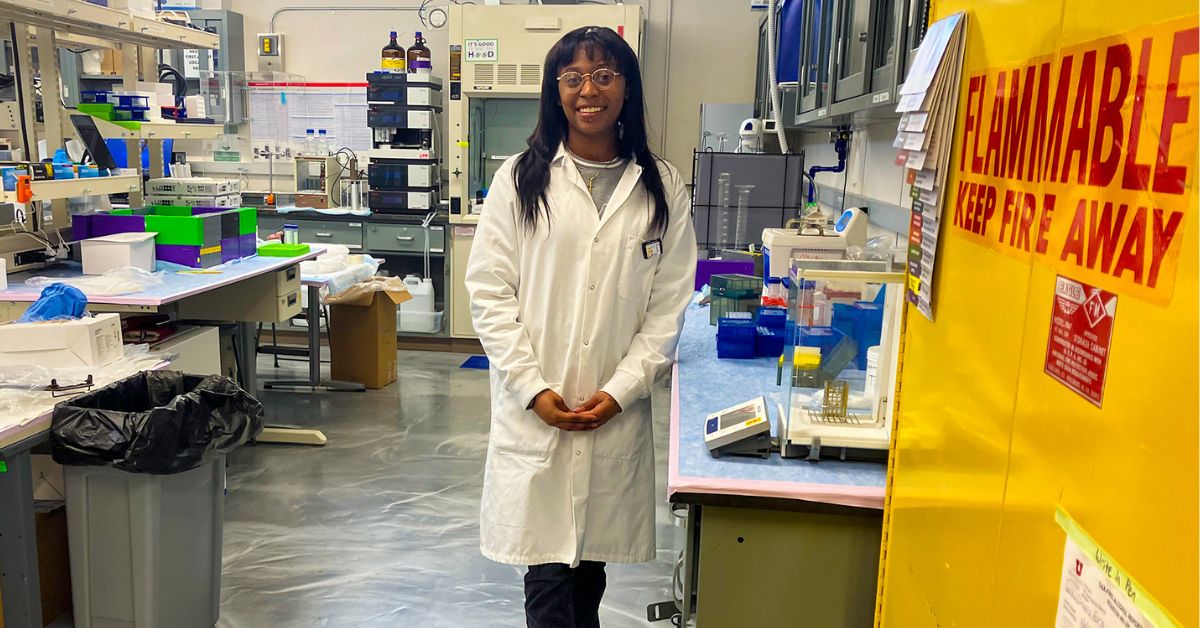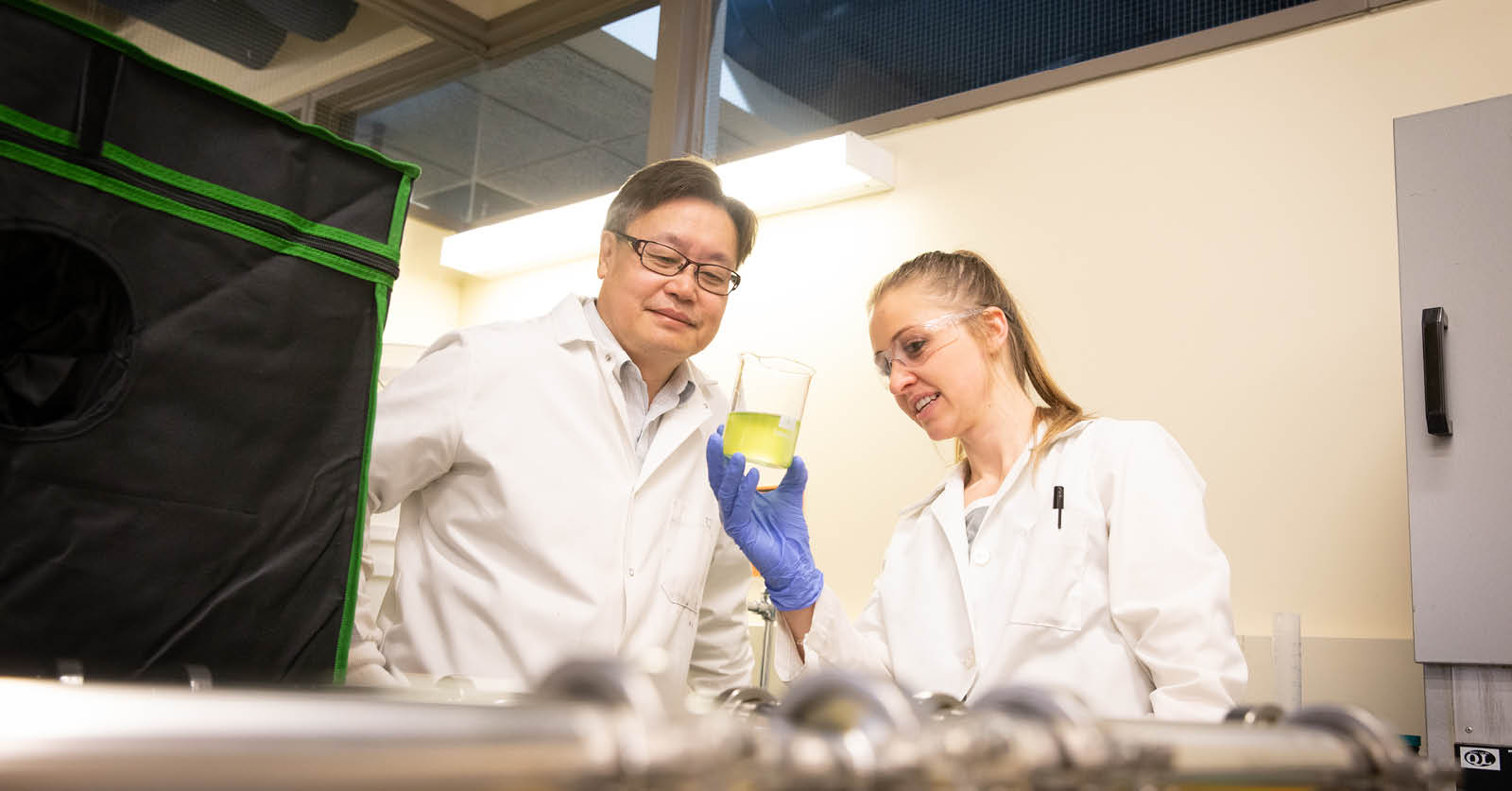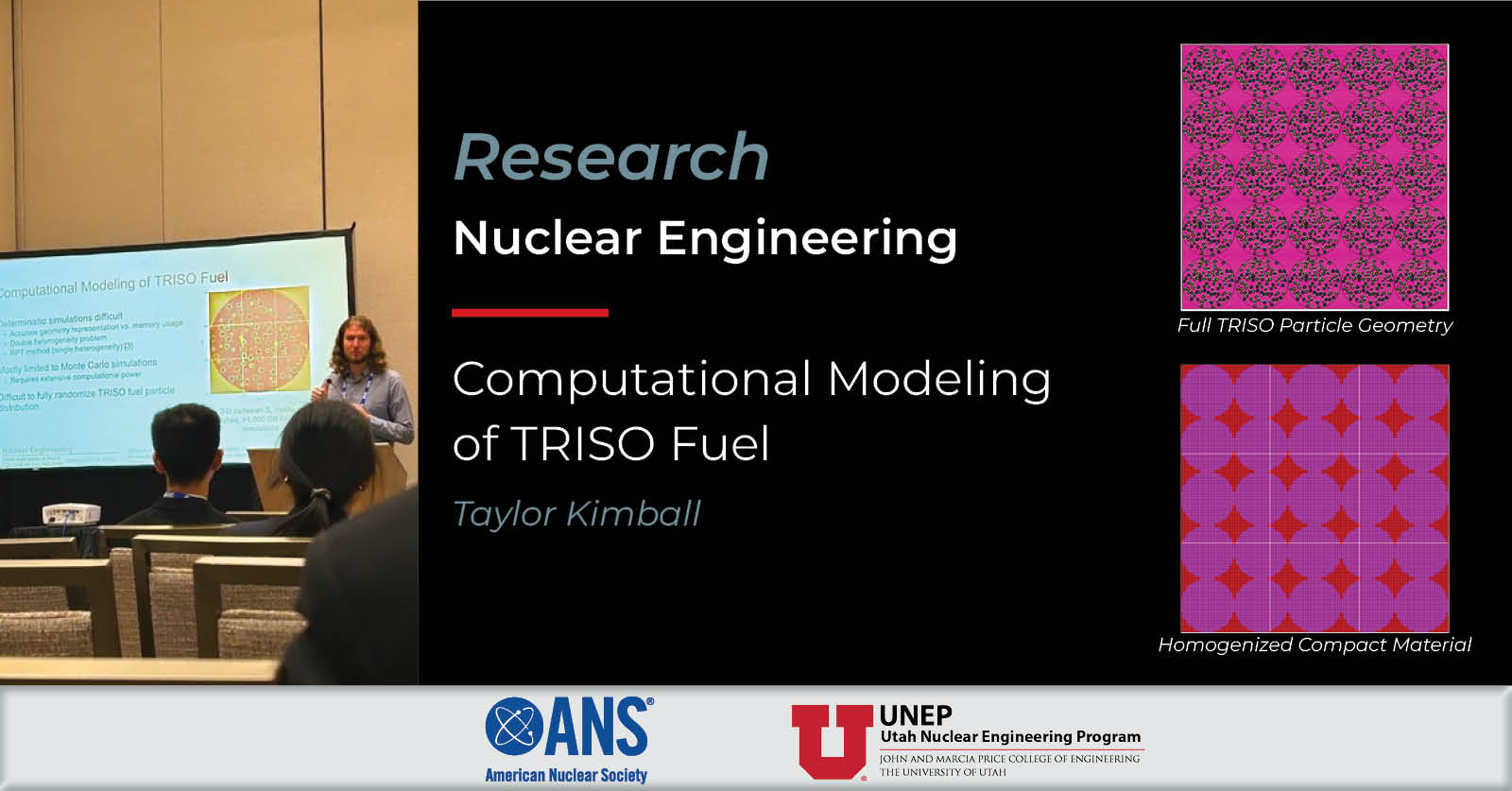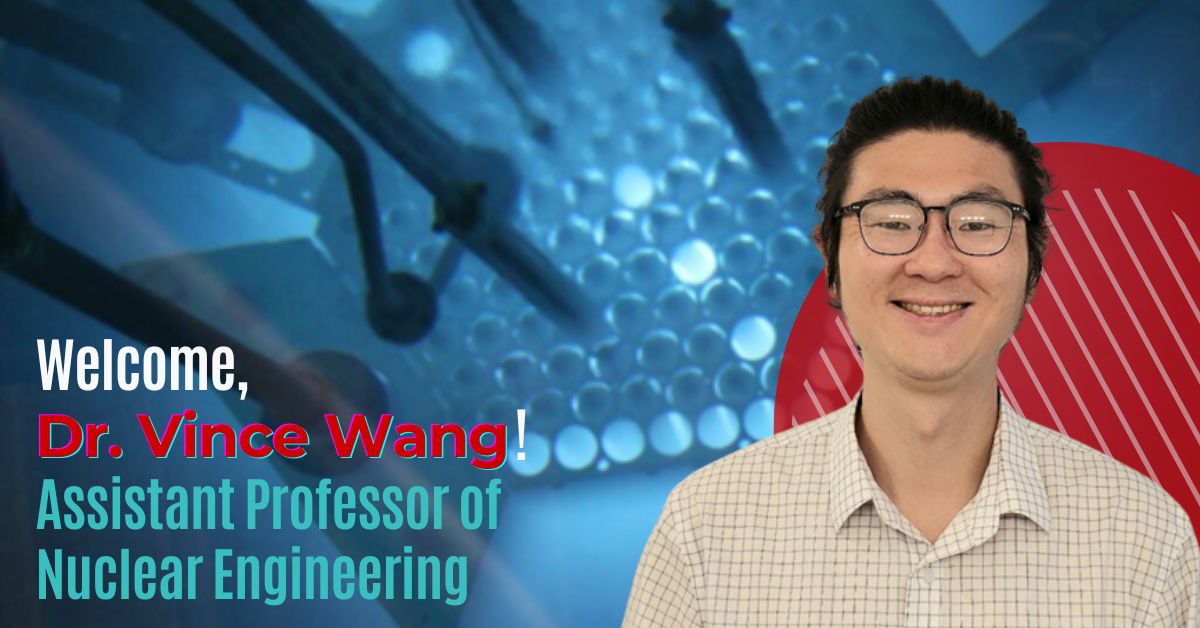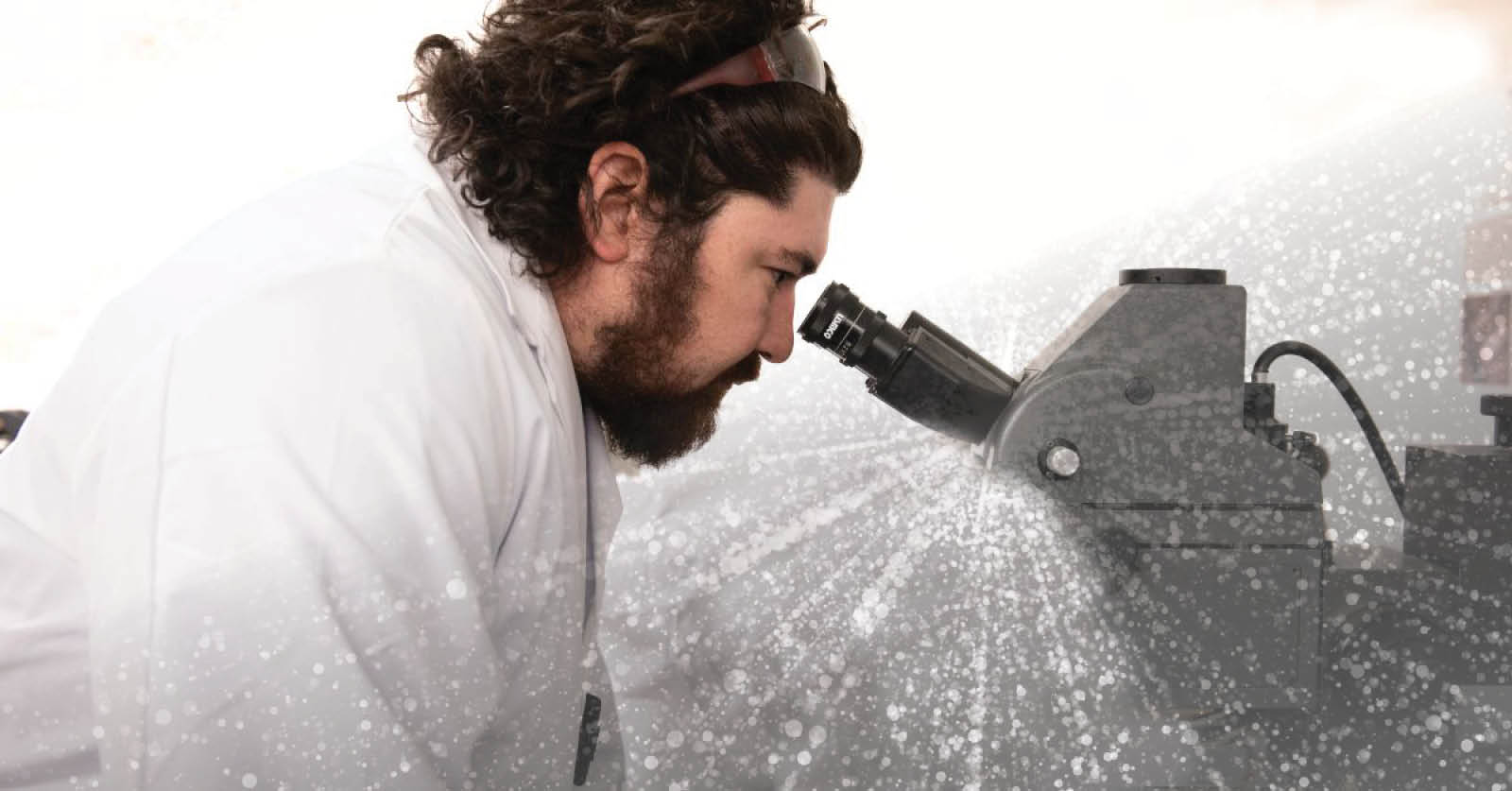New Faculty Hire Brings Award-Winning Wind Engineering Expertise
The Department of Civil & Environmental Engineering (CvEEN) is excited to announce that Dr. Fei Ding will be joining the University of Utah this August as an Assistant Professor specializing in Structural Engineering. Dr. Ding brings a unique blend of deep theoretical knowledge and cutting-edge computational research that addresses some of the most pressing challenges in wind engineering today.
Adding to the excitement of her upcoming appointment, Dr. Ding was recently honored with the Robert Scanlan Award, one of the most prestigious recognitions in the field of wind engineering. Presented every four years by the American Association for Wind Engineering (AAWE), the award recognizes her best doctoral thesis related to theoretical advances in the mechanics of wind or wind-structure interaction in the Americas Region of the IAWE (International Association for Wind Engineering).
Her award-winning dissertation, titled “Morphing Structural Profile Under Winds,” explores new strategies for adapting structures to wind hazards using advanced computational modeling and artificial intelligence.
“Infrastructure exposed to wind undergoes complex interactions, which precludes a functional relationship between wind and its load effects,” Ding explains.
Her work addresses a key challenge in the field: while Computational Fluid Dynamics (CFD) holds great promise as a tool for simulating wind-structure interaction, its widespread adoption is limited by computational intensity and inherent uncertainty. Dr. Ding’s research advances the state of CFD by improving predictive capabilities through multi-fidelity modeling and uncertainty quantification—including propagation of both aleatory and epistemic uncertainties.
Her work doesn’t stop at analysis. Dr. Ding has also introduced new mitigation strategies, including aerodynamic shape sculpting of buildings and autonomous morphing of structural forms to dynamically respond to changing wind loads—innovations aimed at creating more sustainable and resilient urban environments in the face of climate variability.
As a new CvEEN faculty, Dr. Ding will continue her research in computational wind and structural engineering, focusing on integrating data-driven methods with physics-based modeling to better understand and mitigate wind hazards.
“My research is about building smarter, more resilient infrastructure,” she says, “by merging advanced computational tools with a deep understanding of physical systems.”
We are thrilled to welcome Dr. Ding to the U and look forward to the transformative impact her work will have on infrastructure resilience and the future of structural engineering.

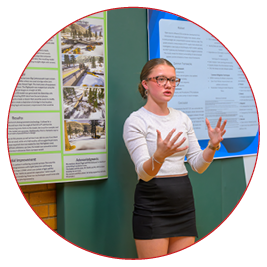
Frances Hodson presenting her civil engineering research.
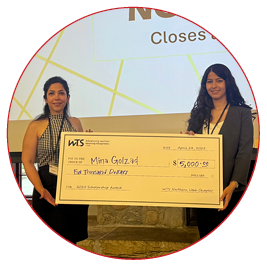
Mina Golazad (right) receiving her scholarship.
About Dr. Ding
Before joining the University of Utah, Dr. Ding was a Postdoctoral Fellow with the Rice Sustainability Institute and previously held research appointments at the University of Notre Dame and the University of California, Berkeley. She earned her Ph.D. in Civil Engineering with a minor in Computational Science and Engineering from the University of Notre Dame.
Dr. Ding is also actively recruiting Ph.D. students to join her research group. Students interested in contributing to cutting-edge work at the intersection of structural engineering, wind science, and AI are encouraged to contact her at fei.ding@utah.edu.
More news from our Department
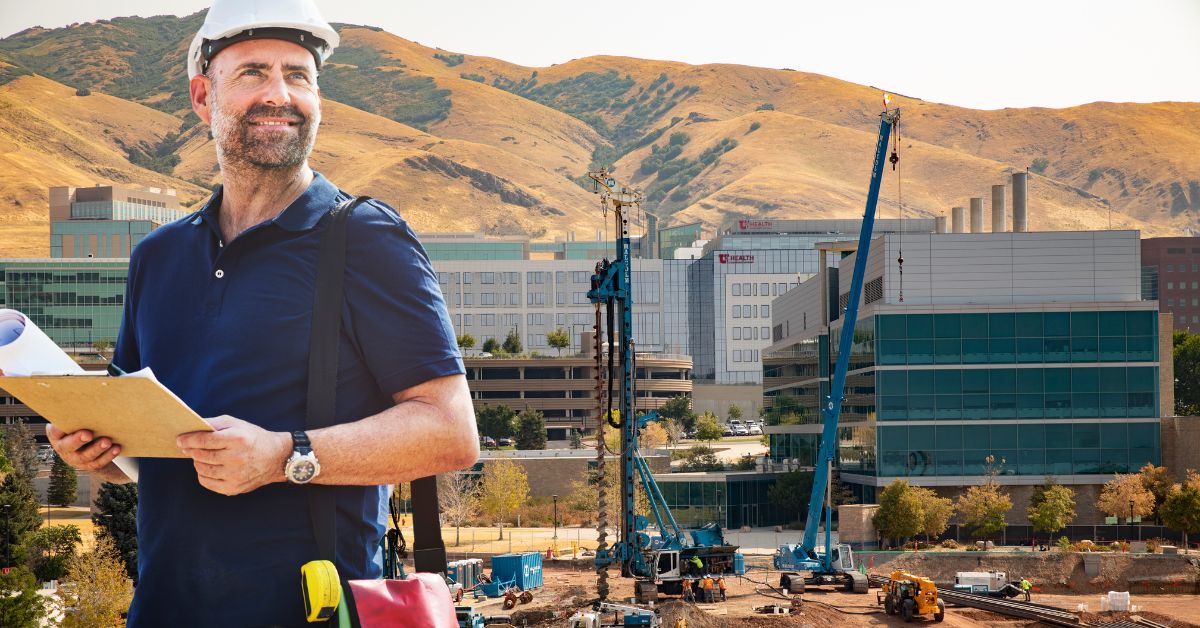
Creating Construction Leaders: New Online M.S. in Construction Engineering
The University of Utah’s Department of Civil & Environmental Engineering (CvEEN) now offers a fully online Master of Science in Construction Engineering. Designed for working professionals and recent graduates alike, this flexible, industry-focused program delivers advanced training in project management, sustainable construction, cost estimating, and more. Learn from faculty with deep industry ties while balancing […]

Hung-Po Cheng is Using AI to Make Roads Safer
Hung-Po Cheng didn’t just come to the University of Utah to earn an engineering Ph.D.—he came to create a real-world impact by making the roads we travel every day just a little safer. With a passion for data-driven safety solutions and a vision for smarter cities, Hung-Po is using artificial intelligence to improve traffic safety. […]

Student Spotlight: Joe Davies Finishes Skiing Career as National Champion
Joe Davies, a Civil & Environmental Engineering student graduating in Fall 2025, capped off his collegiate skiing career in unforgettable fashion—by becoming a national champion. At the 2025 NCAA Championships hosted by Dartmouth College, Davies dominated the 20K freestyle, claiming first place in the men’s race with a commanding lead of over a minute. His […]
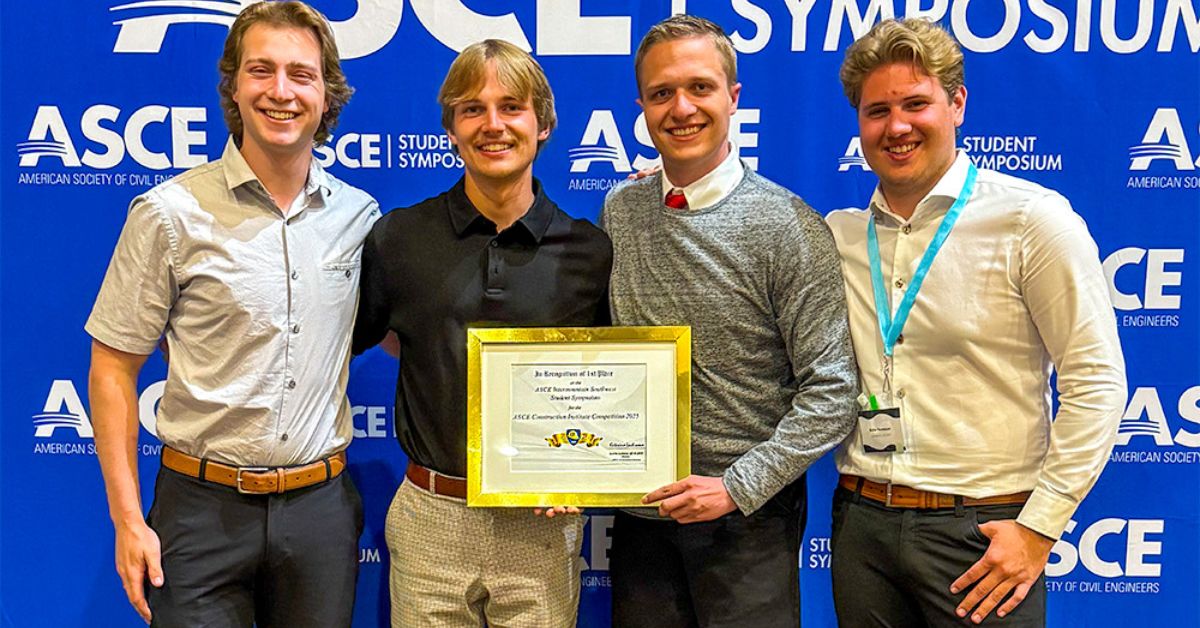
University of Utah ASCE Student Chapter Celebrates Back-to-Back Top Honors
The 2024–2025 academic year was another success for our ASCE Student Chapter, marked by national recognition, regional competition success, and an incredibly active and dedicated student body. Throughout the year, the chapter was led by a passionate group of student leaders and the steady guidance of long-time faculty advisor Dr. Christine Pomeroy. For the second […]

